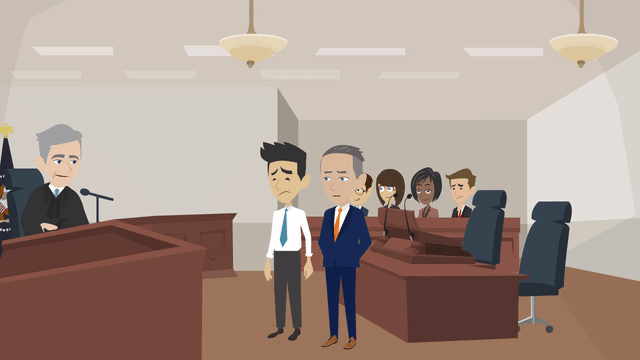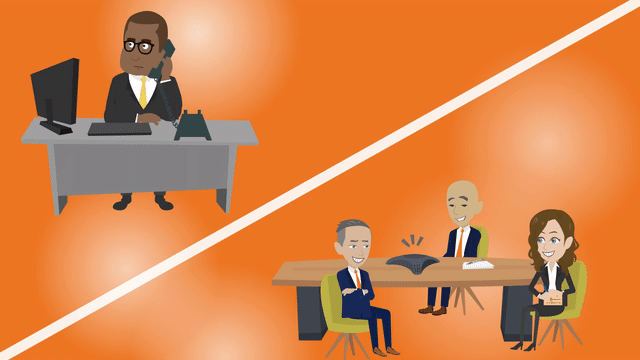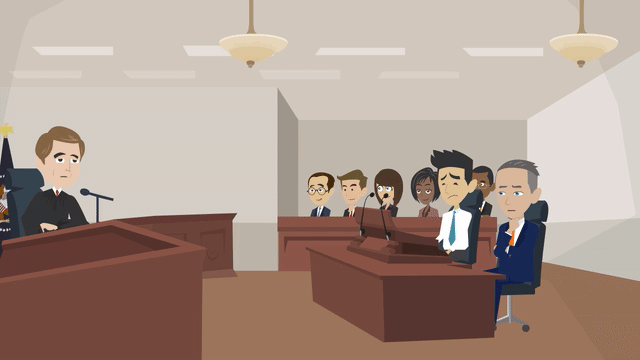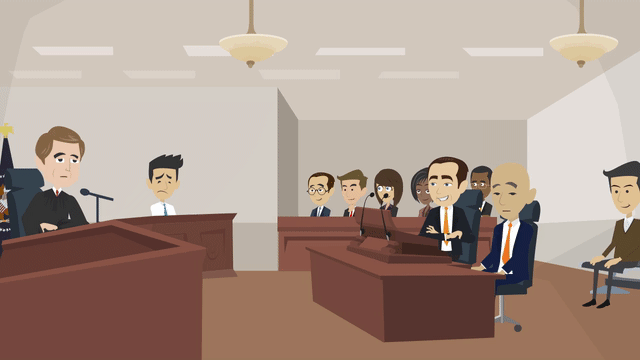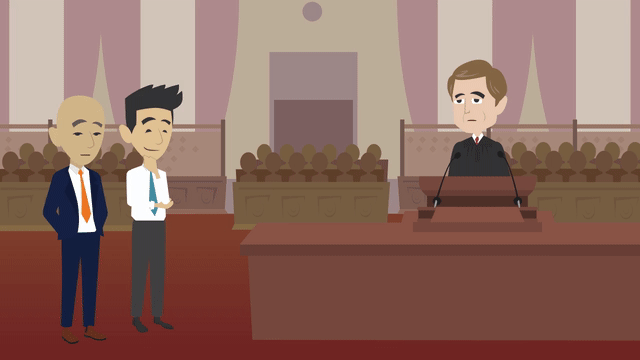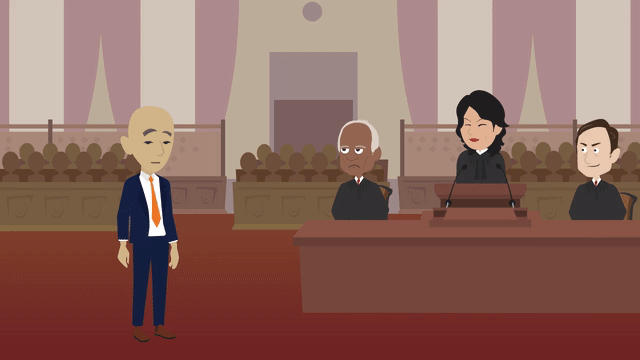Probation Supervision And Violations | Lawyers & Attorneys
Probation is intended to monitor a person convicted of a crime, for a specific period, to make sure the person complies with the law and does not commit additional crimes. Probation supervision requires a person to follow certain rules and makes sure a person receives any treatment necessary to live a sober and healthy life. Probation supervision can result after a conviction for either a misdemeanor or a felony. If you or someone you know has questions about probation or has been charged with violating probation, you should contact a criminal lawyer who handles probation violations.
Frequently Asked Questions About Probation Supervision And Violations
Our criminal defense lawyers provide answers to some important questions below.
Your probation interview is a critical stage of the case against you. It can affect how you are sentenced even in cases where you are accepting a plea offer with a promised sentence. It is important that you are honest, up front, and treat the interviewing officer with respect.
Probation offices have very different policies from county to county. Some allow your attorney to be with you during the interview. In such places, it is important to talk to your attorney to determine if it is necessary for your attorney to attend the meeting with you.
A probation officer will likely cover many topics including:
- Your educational, work, and criminal history.
- Your life history.
- The facts and circumstances of the offense you will be sentenced for; and
- Any mental health or substance abuse history.
After meeting with you, the probation department will provide a report to the court along with an opinion about an appropriate sentence. If probation is part of your sentence, the probation department will likely include proposed terms and conditions of probation that you will be obligated to follow.
Probation refers to supervision by a county probation officer. Your Probation will be monitored in the County that you live in.
A probation sentence can result from a misdemeanor conviction (1, 2, or 3 years) or following a felony conviction (3, 4, or 5 years). Sex crimes carry a more significant time of probation. For misdemeanor sex crimes, probation is up to 6 years and for felony sex crimes, probation is up to 10 years.
The terms and conditions of probation will vary depending on the type of conviction. For instance, if you are convicted of a DWI offense, some of the conditions will relate to driving, while a conviction for a drug related offense may require conditions of treatment. However, in general a person on probation can generally expect the following terms and conditions of probation:
- Report to a probation officer as directed by the court or the probation officer and permit the probation officer to visit you at your home or elsewhere
- Remain within the jurisdiction of the court unless granted permission to leave by the court or the probation officer
- Answer all reasonable inquiries by the probation officer and notify the probation officer prior to any change in address or employment
- Refrain from violating any federal, state, or local law and notify the supervising probation officer within 24 hours if arrested or questioned by law enforcement
- Find and maintain full-time, suitable, and verifiable employment and/or attend school on a regular basis
- Obey the directions given by the probation officer to ensure compliance with the conditions of probation
- Live in a residence approved by the supervising probation officer
- Submit to screening through recognized tests for the detection of alcohol or drugs
- Do not use or possess any substance, device, or procedure which may mask or conceal the use of marijuana, drugs, controlled substances, or alcohol by altering alcohol screens, breathalyzer results and/or blood screens and urinalysis.
- Submit to a search of your person, premises, residence, vehicle, and any area under your immediate control without prior notification and as deemed appropriate by the probation department
- Do not own, have in possession, residence or motor vehicle, any rifle, shotgun, firearm, or dangerous weapon
- Refrain from contact with disreputable person(s)
If you are placed on probation for a DWI, in addition to the general conditions above, you can also expect the following terms and conditions:
- Do not enter or visit any bar, tavern, or other establishment whose primary focus is serving alcohol. Refrain from entering or sitting in the bar areas of any other restaurant.
- Do not drive or obtain a driver’s license without the express consent of the probation office or the court. This condition is binding even if DMV would issue you a license or permit you to drive.
- Install an Ignition Interlock Device on any vehicle you own or are given permission to operate. This condition is binding even if DMV would otherwise allow you to operate without an ignition interlock device.
- Wear a SCRAM unit (Secure Continuous Remote Alcohol Monitor) which will constantly monitor the content of your sweat for any alcohol and transmit that information to a designated probation officer.
- Obtain an alcohol abuse evaluation and engage in all recommended treatment.
- Participate and complete DMV’s Impaired Driver’s Program.
- Attend a one-evening New York Victim Impact Panel during which you will hear from those whose lives were forever altered by individual’s decisions to drink and drive.
If you are placed on probation for a sexual offense, in addition to the general conditions above, you can also expect the following terms and conditions:
- Cooperate with all requirements of the New York State Sex Offender Registration Act.
- Submit to a sex offender evaluation at an accredited agency approved by the probation department and participate and cooperate in all recommended treatment of said agency until successful completion as deemed by the agency. The defendant will be responsible for the cost of the treatment/counseling. The defendant will sign a release of information allowing the probation department and court to access the treatment records.
- Do not possess pornography in any form. The probation officer shall have the ability to search the residence where the defendant is residing or search any computer files at the residence for pornographic materials.
- Refrain from knowingly entering or upon any school grounds.
- Refrain from contact with any persons under the age of 17 years unless an adult is present.
If you are in good standing with no pending violations, misdemeanor probation and felony probation can be transferred to another county if life circumstances or a new job force you to change your residence.
Misdemeanor probation is not transferrable out of state. Felony probation can transfer to another state if the other state is willing to accept you and if you are in good standing in the state you are transferring from.
If you receive a sentence of probation, you will be required to report to a probation officer on a regular basis. At first it may be once per week, but eventually it will likely be extended to twice per month or even once per month. Reporting varies depending on your conviction and your rapport with your Probation Officer.
Maybe. Generally, if you perform well on probation, after you have served half your probationary sentence, some judges and probation officers are receptive to a request for early termination of probation. However, there are occasions where some judges will not allow early termination and/or where the probation officer and even the prosecuting attorney will oppose early discharge.
There are two ways to get discharged from probation early. In some instances, the probation officer will urge the court to allow you to be discharged and a judge will sign the order discharging you from probation. In other instances, a criminal lawyer can bring a written application for the termination of your probation requesting that the court end your probation term.
To give yourself the best chance for early termination of probation you should do the following:
- Comply will all terms and conditions of probation
- Do not miss any appointments with your probation officer
- Complete all treatment and do not have any drug or alcohol relapses
- Do not get rearrested
- Maintain stable employment or go to school
- Pay any restitution that was ordered by the court
- Pay all court-imposed fines
- Get a favorable report from your probation officer
A violation of probation is filed by the probation department that supervises you. The violation is filed with the Court and/or Judge that sentenced you. The Judge will determine whether there is enough evidence to issue a warrant or a declaration of delinquency. If this occurs, you will be picked up by law enforcement on the warrant or be advised of a date and time to surrender yourself to be arraigned before a Judge.
Depending on the severity of the allegation and the recommendation of your probation officer, the court will either contact you for an appearance or issue a warrant for your arrest.
Maybe. New York’s bail reform does little to change the reality of life when on probation. While the court has the discretion to release you or to set some monetary bail, in many cases when you are charged with a new crime while on supervision you will, at least initially, be remanded without bail pending the outcome of the matter. Depending on the results of the probation hearing, you may or may not face additional jail time.
Like a criminal arrest, you will be advised of the allegation and your right to an attorney. While New York has gone through large bail reforms recently, allegations that you violated your probation can still result in bail or even remanding you to jail without any chance to post bail. At your initial appearance, you should enter a general denial to the probation violation and ask to speak to a criminal lawyer. A criminal lawyer who handles probation violations will advise you of all your rights, conduct the hearing, or negotiate a resolution on your behalf.
Most importantly you have the right to an attorney. You also have the right to a hearing. At the hearing, a judge hears the evidence against you and decides if you violated any term of your probation. At a hearing, the burden of proof is on the prosecutor to prove that you violated a term or condition of your probation “by a preponderance of the evidence”. This is a lesser burden than a criminal case where the burden of proof is “beyond a reasonable doubt”.
Violating any condition of probation, even a minor one, subjects you to the maximum punishment your conviction allows for. For example, if you are on probation for a class A misdemeanor, your maximum punishment is one year in jail. If you are on probation for 3 years and violate your probation after 2 ½ years, you still face one year in jail. If you are on felony probation, you face the maximum period of prison allowed for the felony you were convicted of. Thus, for an E felony, you face up to 4 years in prison, for a D felony, you face up to 7 years in prison and for a C felony you face up to 15 years in prison.
Maybe not. If you either admit to your violation or are found to have violated any term and condition of your probation after a hearing, it is up the judge to determine your new sentence. It can involve restoring you to probation, fines, new conditions, and jail or prison depending on the circumstances.
Timeline of a Criminal Defense Case
- Whether you just made a big mistake, or are being falsely accused, this can be a very emotional and important time in a case
- It is very important that you remain silent and not answer any questions about the case without a lawyer present
- Contact a criminal defense attorney as soon as possible
- Confirm the lawyer is an experienced criminal defense lawyer
- Meet with the lawyer who will help you understand the process of a criminal case
- If you have been arrested, critical proceedings and time frames begin immediately
- You will appear before a judge who will determine if you will be incarcerated, released on bail or supervision, or released without conditions
- If you are charged with a felony in a town, village or city court, the prosecuting agency will have six months from the date of your arrest to determine whether to present your case to a grand jury to seek an indictment or return your case to a lower court to be handled as a misdemeanor
- Discovery is the exchange of information between the governmental agency prosecuting you, you, and your attorney
- In New York State this process begins shortly after your appearance in court
- You can expect exchange of the following if it exists in your case:
- Police Reports
- Investigative Notes
- Videos / Body Camera Footage / Dash Camera Footage
- Forensic Reports
- Photographs
- Exculpatory Material (Brady)
- Impeachment Material
- You and your attorney may also be engaged in information gathering that includes:
- Freedom of Information Law (FOIL) Requests/Responses
- Additional Witness Interviews
- Expert Evaluations / Disclosures
- Motions are written applications to the court to request any of the following:
- Preclude Evidence
- Suppress Evidence
- Seek a Ruling on a Constitutional Rights Violation
- Seek Outright Dismissal of One or More Charges Based on Legal/Factual Matters
- Request Hearings
- A plea bargain is an offer from the prosecuting attorney to resolve your case
- Whether to plead guilty or not is always a choice you get to make, not your attorney
- Your attorney will meet with you, discuss the facts and the law of your case, and offer advice. A plea offer takes into consideration your charges as well as:
- Prior criminal history if any
- Life experiences
- Evidentiary Problems
- Post-Incident Actions
- Mental Health Counseling
- Substance Abuse Treatment
- Anger Management Treatment
- If you choose not to accept a plea bargain and are heading to trial, there are likely to be hearings to consider the following:
- Preclusion/Suppression of Evidence
- Admissibility of Evidence
- What Prior Criminal History/Bad Acts May Be Introduced by the Prosecutor if You Testify on Your Own Behalf
- During a hearing, there is no jury, and the judge will make factual and legal determinations regarding what evidence will be allowed at trial.
- You have the right to a trial by a fair and impartial jury or by the judge who will act as both judge and jury
- At a trial, the prosecution has the burden to prove your guilt beyond a reasonable doubt
- The judge or jury will listen to the evidence presented and the arguments by the lawyers, apply the facts to the law, and render a verdict of not guilty or guilty
- A Verdict must be unanimous
- If you are convicted at trial, or if you entered a plea bargain, there will be a sentencing date where your punishment will be imposed by the judge
- If you previously entered a plea bargain, the judge will likely impose the agreed upon sentence at that time
- In the event you are convicted, you have the right to appeal
- This is true whether you plead guilty or are convicted after trial
- However, by accepting a plea bargain, you may have waived some of your appellate rights
- It is important that your attorney file a notice of appeal on your behalf and that you discuss the appeal process with your lawyer
LaMarche Safranko Law Testimonials
“I cannot thank George E. LaMarche lll and his team for the excellent legal work they provided for my son, and in extension, our entire family. His experience, knowledge of the law, networking ability and communication is second to none. In our case, our son was wrongly accused by a small town police officer and charged with 5 tickets…
“I wanted to express my deepest appreciation to Mr. Andrew Safranko for the exceptional job he did in regards to my legal representation. Mr. Safranko displayed the utmost in professionalism and discretion during the entire court process, and took the time to explain each and every step….
“I am an attorney who found himself in the middle of a serious, personal legal matter that compromised not only my personal life but my professional life as well. I immediately contacted Andrew (Andy) Safranko, Esq. Andy worked tirelessly and extremely hard to bring my legal situation to a very favorable resolution. In so doing, Andy not only saved certain aspects of my personal and professional life…
“Throughout the attorney client relationship regarding my personal injury lawsuit, George and his staff continually exhibited tremendous amounts of legal knowledge, skill, and a vast amount of expert resources that ultimately resulted in a final judgment in my favor. George was there every step of the way to explain where we stood and what to expect next and there was never a need to question his professional judgment…
“Dear George, Andy and Staff,
Thank you all for your kindness and all your help in getting back to my wellbeing and life. I could not have done it without you all. Everything is going so well again. I recommend you highly. Thanks Again!”
“I can honestly say that the best decision I’ve ever made was retaining George LaMarche as my attorney. I was in a situation where everything wasat risk; my career, livelihood, and the ability to provide for my family. In desperation, I contacted over a dozen attorneys. The majority of the lawyers I spoke with promised results without seeing paperwork or knowing valuable facts….
“The staff at LaMarche Safranko Law took care of whatever I needed, it was just fabulous. It was top shelf, if I called, I got George. If he was in a meeting, they left him a message. He called me right back after the meeting. Everybody was very courteous and very nice there. If I left a voicemail, everybody got back to me quickly. The level of service was very, very good and I would Highly recommend them.”
“No one likes to be in a bad situation, but if you need a lawyer George is your man. Not only does he point you in the right direction he offers good advice for your future. As much as we bring him business he does not encourage that next time anticipation….
“Dear Mr. Safranko,
Thank You so much for answering my question, and so expediently!
The dedication, respect, and consideration with which you treat your clients, current and past, is remarkable. It is why I reached out to you when searching in my time of need, and why I would highly recommend…
“Dear Andy,
Thank you so much for everything you have done for our son over the last three years. This has been a very challenging time for our family and the knowledge that our son has an attorney as capable and amazing as you are has given us peace of mind!
“Dear Andrew and George,
I cannot thank you enough for your hard work, diligence, and selfless manner that you put towards my legal difficulties in Colonie. From the first moment I met you, you helped reassure me that things were going to turn out in a more favorable manner than I originally thought. Clearly, the final result of my court case displays the quality of time and work that you put into this….
“The arrest of my husband in 2008 was an extremely difficult and emotional time for our family. The arrest turned our lives upside down. It was sudden and unexpected and had tragic emotional as well as financial consequences. I had no idea what to do under the circumstances….
“My family and I cannot thank George and his staff enough for all of the support and guidance they have given us over the past six months. Anyone who has ever suffered a personal injury knows how difficult they are to overcome, but I’m glad we had such an intelligent and hardworking attorney on our side so I could focus on my recovery rather than on the details of the case….
“I wanted to take this opportunity to thank you for your excellent representation on my recent matter. I have worked with lawyers, and in law firms much of my professional life, but I have never encountered the rare mix of skill, integrity and humanity in one individual—you….




